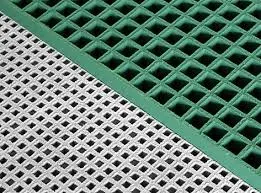
-
 Afrikaans
Afrikaans -
 Albanian
Albanian -
 Amharic
Amharic -
 Arabic
Arabic -
 Armenian
Armenian -
 Azerbaijani
Azerbaijani -
 Basque
Basque -
 Belarusian
Belarusian -
 Bengali
Bengali -
 Bosnian
Bosnian -
 Bulgarian
Bulgarian -
 Catalan
Catalan -
 Cebuano
Cebuano -
 China
China -
 China (Taiwan)
China (Taiwan) -
 Corsican
Corsican -
 Croatian
Croatian -
 Czech
Czech -
 Danish
Danish -
 Dutch
Dutch -
 English
English -
 Esperanto
Esperanto -
 Estonian
Estonian -
 Finnish
Finnish -
 French
French -
 Frisian
Frisian -
 Galician
Galician -
 Georgian
Georgian -
 German
German -
 Greek
Greek -
 Gujarati
Gujarati -
 Haitian Creole
Haitian Creole -
 hausa
hausa -
 hawaiian
hawaiian -
 Hebrew
Hebrew -
 Hindi
Hindi -
 Miao
Miao -
 Hungarian
Hungarian -
 Icelandic
Icelandic -
 igbo
igbo -
 Indonesian
Indonesian -
 irish
irish -
 Italian
Italian -
 Japanese
Japanese -
 Javanese
Javanese -
 Kannada
Kannada -
 kazakh
kazakh -
 Khmer
Khmer -
 Rwandese
Rwandese -
 Korean
Korean -
 Kurdish
Kurdish -
 Kyrgyz
Kyrgyz -
 Lao
Lao -
 Latin
Latin -
 Latvian
Latvian -
 Lithuanian
Lithuanian -
 Luxembourgish
Luxembourgish -
 Macedonian
Macedonian -
 Malgashi
Malgashi -
 Malay
Malay -
 Malayalam
Malayalam -
 Maltese
Maltese -
 Maori
Maori -
 Marathi
Marathi -
 Mongolian
Mongolian -
 Myanmar
Myanmar -
 Nepali
Nepali -
 Norwegian
Norwegian -
 Norwegian
Norwegian -
 Occitan
Occitan -
 Pashto
Pashto -
 Persian
Persian -
 Polish
Polish -
 Portuguese
Portuguese -
 Punjabi
Punjabi -
 Romanian
Romanian -
 Russian
Russian -
 Samoan
Samoan -
 Scottish Gaelic
Scottish Gaelic -
 Serbian
Serbian -
 Sesotho
Sesotho -
 Shona
Shona -
 Sindhi
Sindhi -
 Sinhala
Sinhala -
 Slovak
Slovak -
 Slovenian
Slovenian -
 Somali
Somali -
 Spanish
Spanish -
 Sundanese
Sundanese -
 Swahili
Swahili -
 Swedish
Swedish -
 Tagalog
Tagalog -
 Tajik
Tajik -
 Tamil
Tamil -
 Tatar
Tatar -
 Telugu
Telugu -
 Thai
Thai -
 Turkish
Turkish -
 Turkmen
Turkmen -
 Ukrainian
Ukrainian -
 Urdu
Urdu -
 Uighur
Uighur -
 Uzbek
Uzbek -
 Vietnamese
Vietnamese -
 Welsh
Welsh -
 Bantu
Bantu -
 Yiddish
Yiddish -
 Yoruba
Yoruba -
 Zulu
Zulu
Fiberglass Pipe Fittings for Durable and Efficient Piping Solutions in Various Applications
Understanding Fiberglass Pipe Fittings Applications, Benefits, and Considerations
Fiberglass pipe fittings are essential components in various industries, providing durable, lightweight, and corrosion-resistant solutions for fluid and gas transportation systems. Made from a composite of glass fibers and resin, these fittings are increasingly popular in sectors such as oil and gas, wastewater management, chemical processing, and construction. This article explores the applications, advantages, and considerations related to fiberglass pipe fittings, providing a comprehensive overview for engineers and project managers.
Applications of Fiberglass Pipe Fittings
Fiberglass pipe fittings are commonly utilized in several applications due to their material properties. Their resistance to corrosion makes them an ideal choice for industries where pipes are exposed to harsh chemicals or extreme environments. For instance, in the chemical processing industry, fiberglass fittings are used to transport aggressive fluids, ensuring longevity and reducing maintenance costs.
In the oil and gas sector, fiberglass fittings are employed in both upstream and downstream operations. They are crucial for transporting hydrocarbons and other fluids safely. The lightweight nature of fiberglass also simplifies installation processes, making it easier to handle and install compared to traditional materials like steel or concrete.
Wastewater management systems benefit significantly from fiberglass pipe fittings
. Their resistance to UV light, heat, and microbial growth ensures that they can withstand the rigors of waste transportation without deteriorating. Additionally, in construction, these fittings are used in plumbing systems where durability and flexibility are essential, allowing for efficient water and sewage management.Advantages of Fiberglass Pipe Fittings
One of the primary advantages of fiberglass pipe fittings is their exceptional durability. Unlike metal counterparts, fiberglass does not rust or corrode, significantly reducing maintenance needs and extending the lifespan of the infrastructure. This durability equates to cost savings over time, making fiberglass a more economical choice in the long run.
fiberglass pipe fittings

Another notable benefit is the lightweight nature of fiberglass fittings. This property not only simplifies transportation and handling but also reduces installation costs as less support structure is needed to hold the pipes in place. Reduced weight can enhance system efficiency, particularly in large-scale applications where traditional materials can be cumbersome and costly.
Furthermore, fiberglass fittings are excellent insulators, minimizing thermal conductivity. This characteristic is particularly beneficial in applications involving temperature-sensitive fluids, as it helps maintain desired temperatures and enhances energy efficiency.
Considerations When Using Fiberglass Pipe Fittings
While fiberglass pipe fittings offer numerous advantages, there are essential considerations to keep in mind. It is critical to understand the specific requirements of an application, as fiberglass may not be suitable for all environments. For instance, extreme temperatures or heavy mechanical loads could necessitate a different material approach.
Additionally, proper installation is crucial for maximizing the effective lifespan of fiberglass fittings. Skilled professionals must handle installation to avoid issues such as improper alignment or stress points that can lead to failures. Manufacturers typically provide guidelines for installation, outlining best practices to ensure optimal performance.
Another factor to consider is the compatibility of fiberglass fittings with the fluids being transported. Although fiberglass is resistant to many chemicals, it is not universally compatible with all substances. Always consult compatibility charts provided by manufacturers to avoid potential degradation or failure in systems involving aggressive fluids.
Conclusion
Fiberglass pipe fittings represent a modern solution for various industries, combining durability, lightweight properties, and corrosion resistance. Their applications range from chemical processing to oil and gas, wastewater management, and construction, showcasing their versatility in multiple environments. While they offer many advantages, it is essential to consider the specific requirements of each application, ensure proper installation, and verify compatibility with transported fluids to fully leverage the benefits of fiberglass fittings. In doing so, businesses can enhance their operational efficiency, reduce maintenance costs, and ensure the longevity of their infrastructure.









